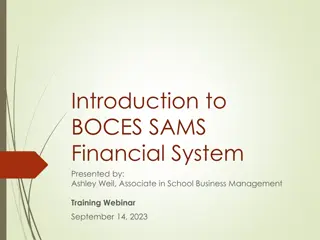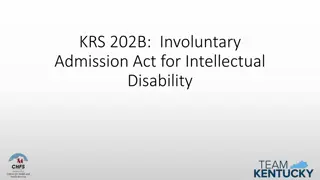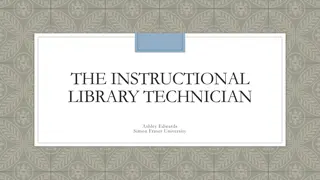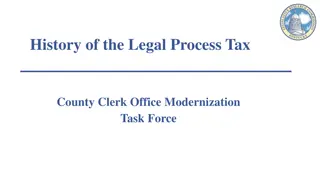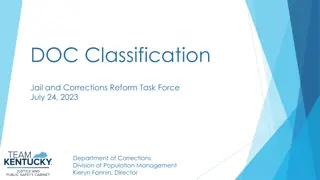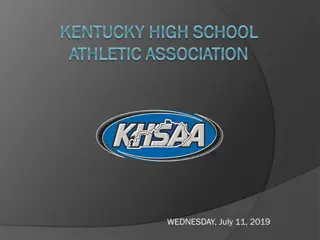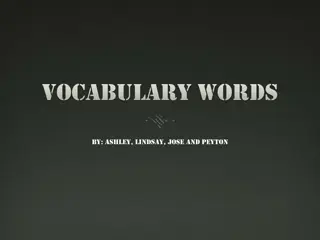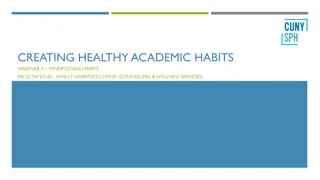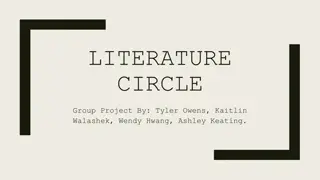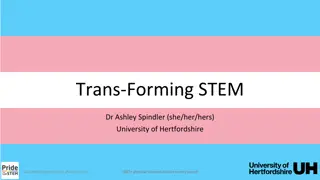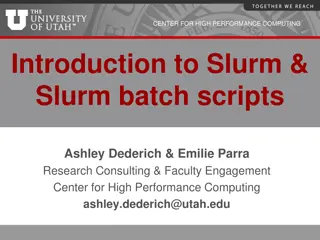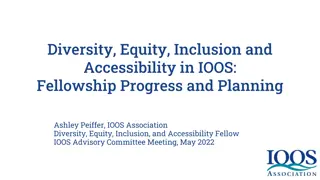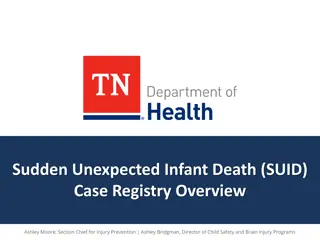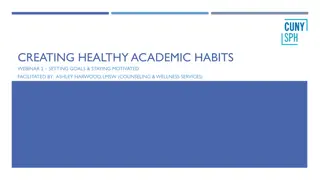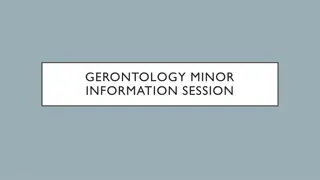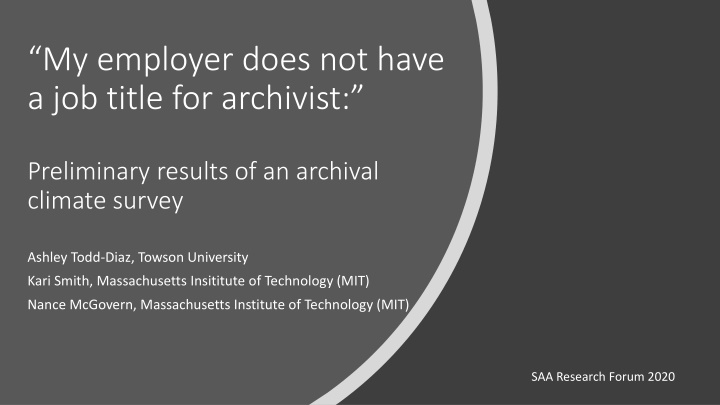
Archival Climate Survey: Insights on Professional Identity and Organizational Structure
Explore the preliminary results of an archival climate survey conducted by Ashley Todd-Diaz, Kari Smith, and Nance McGovern. The survey delves into the professional identity and organizational positioning of archivists within academic institutions, shedding light on challenges and opportunities in the field.
Download Presentation

Please find below an Image/Link to download the presentation.
The content on the website is provided AS IS for your information and personal use only. It may not be sold, licensed, or shared on other websites without obtaining consent from the author. If you encounter any issues during the download, it is possible that the publisher has removed the file from their server.
You are allowed to download the files provided on this website for personal or commercial use, subject to the condition that they are used lawfully. All files are the property of their respective owners.
The content on the website is provided AS IS for your information and personal use only. It may not be sold, licensed, or shared on other websites without obtaining consent from the author.
E N D
Presentation Transcript
My employer does not have a job title for archivist: Preliminary results of an archival climate survey Ashley Todd-Diaz, Towson University Kari Smith, Massachusetts Insititute of Technology (MIT) Nance McGovern, Massachusetts Institute of Technology (MIT) SAA Research Forum 2020
Motivation for this study Discussion and lit review Positioning of archives Corollation between Univ. Archives and Records Mgmt Radical collaboration Professional identity Perception Organizational shifts Radical collaboration Professional identity Organizational structure Research Forum 2019 Survey
At many institutions, archival coursework is nested within library schools as a track or specialization. In the U.S., most academic archives exist organizationally and/or physically within the academic library. Some library administrators have stated there is no ideal place in the library for the archives (Todd-Diaz, 2019). Strong team identification between siloed departments in an organization complicates negotiations regarding resources, knowledge sharing, and group power and status (Cyert & March, 1963/2010; Zhu, 2016). Todd-Diaz (2019) found that many library administrators have little to no archival experience and do not identify as archivists. According to social identity theory, an individual's sense of self is tied to the status of the various groups to which they belong, including their profession (Tajfel & Turner, 1979). Smith (2019) found that there is a correlation between University Archivist positions and Records Management responsibilities at academic institutions. McGovern (2018) emphasizes the value that all domains and professions bring to digital practice and that professional inclusion is important for collaboration. Background
Online survey deployed May-June 2020 (n=452) Questions relating to: Professional identity Job title and responsibilities Perception of role within the organization Organizational structure Organizational change Methodology
SAA (n=356, 78%) NEA (n=60, 13%) Museum (n=22, 5%) MAC (n=76, 17%) Years in the archival field Sector Academic (n=230, 51%) Memberships Corporate (n=26, 5%) MARAC (n=138, 31%) Government (n=88, 19%) Other (n=201, 44%) Common "Other" answers Less than 3% Non-profit 11 Association of Certified Archivists 33 Unidentified 11 Society of California Archivists 23 Demographics Arts 5 Archivists Round Table of Metropolitan New York 10 Conference of Inter-Mountain Archivists 10 Research 3 Association of Moving Image Archivists 8 Private 3 Society of Rocky Mountain Archivists 8 Retired/unemployed 3 Rare Book and Manuscript Section (RBMS) of ACRL 7 Library 3 Archivists for Congregations of Women Religious 6 Independent/consultant 2 Delaware Valley Archivists Group 6 Medical 2 Society of Florida Archivists 6 K-12 School 1
Changes Job title (same responsibilities) Unit title Location
Perceived Perceived role change role change following institutional changes Yes (n=92, 32%) No (n=199, 78%) n=291
Impact Impact of changes "The dept. is sometimes seen as separate from the library because of the physical separation." "Now that we have our own space, we have a stronger physical presence on campus." "If anything, I think leadership values me more." "The department we were in before understood us and our work. I feel like [the new department] doesn't even know we exist, let alone what we do or how to let us be part of the department." "I had been perceived as an independent agent who happened to work within the library. I am now perceived as a member of the library, working to fulfill the library's mission." "I have not been seen as an equal to the other library managers." "I think being with Education provided the folks in that division with a different perception of how the Library & Archives and its staff can operate within the institution, but now that we are back with Curatorial, the mission has shifted back to primarily that of serving the institution itself rather than our external audiences." "My role changes depending on who the manager is." "Can not discuss without trauma."
Three Words about the Changes
Does job title job title reflect job responsibilities job responsibilities? No (n=118, 26%) Yes (n=329, 74%) n=447 Does job title job titlereflect professional identity identity? professional No (n=117, 26%) Yes (n=328, 74%) n=445
Mismatched Mismatched job title and professional identity "It was made up on the spot by my department head when I asked for business cards." "I wish I could get the term 'archibrarian' to happen." "How does a numbered position reflect anyone as an identity?" "The title is confusing to everyone." "No one knows what the title means." "The terms 'archivist' and 'curator' are often romanticized, and widely misunderstood." "it's easier to explain what I do as a 'librarian.'" "I changed it myself and no one objected." "For now it is adequate."
No (n=234, 53%) Do you have a secondary secondary professional professional identity identity? Yes (n=207, 47%) n=441
Next Steps Further analyze the qualitative data Respondents (26%) who feel a disconnect with their job title Respondents who don't identify with the job title "archivist" Prepare Research Report for SAA Research Forum Identify similar studies by other researchers and consider that data as it intersects with our study
Ashley Todd-Diaz Kari Smith Massachusetts Institute of Technology (MIT) Nance McGovern Massachusetts Institute of Technology (MIT) Towson University Thank you!
References Cyert, R., & March, J. G. (2010). A behavioral theory of the firm. New Jersey, NJ: Prentice. (Original work published 1963.) McGovern, N. Y. (2018) Radical collaboration and research data management: An introduction, Radical Collaboration: An Archival View, and Forward Together. Research Library Issues, 296. Tajfel, H., & Turner, J. (1979). An integrative theory of intergroup conflict. In W. G. Austin & S. Worchel (Eds.), The social psychology of intergroup relations (pp. 33 48). Monterey, CA: Brooks-Cole. Todd-Diaz, A. (2019). Archives in libraries: The impact of a parent-child relationship on corporate identity and user perception (Doctoral dissertation). Available from ProQuest Dissertations & Theses Global. (2312284161). Zhu, Y.-Q. (2016). Solving knowledge sharing disparity: The role of team identification, organizational identification, and in-group bias. International Journal of Information Management, 36(6, Part B), 1174 1183.

